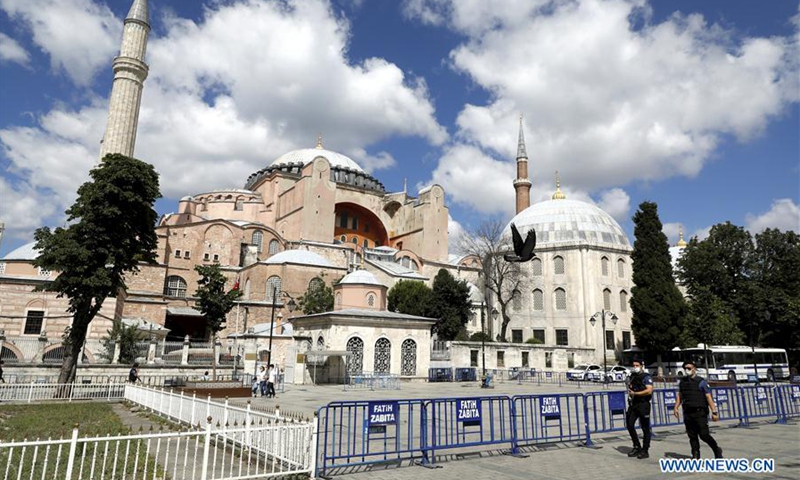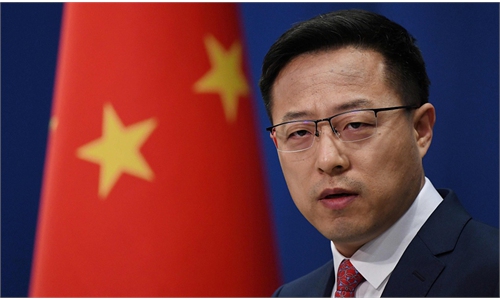Regional countries have reasons to guard against the Organization of Turkic States

Photo taken on July 10, 2020 shows the Hagia Sophia in Istanbul, Turkey. Photo: Xinhua
The name of the Cooperation Council of Turkic Speaking States (Turkic Council) has been officially changed to the Organization of Turkic States, Turkey's President Recep Tayyip Erdogan said at the 8th Summit of the Turkic Council held in Istanbul on Friday, according to media reports. Judging from the change of the name, the organization has been politicized and has been upgraded into a political union.Turkey has been playing an active role in promoting name change. This is in line with Turkey's geopolitical strategy. Since Erdogan took office, there has been an evident change in terms of Ankara's foreign policy. Turkey was eager to join the European Union (EU). But after Ankara's diplomatic efforts for decades, Turkey realized that the EU would not truely embrace it. This proves that its intent to be a member of the EU has failed.
After this, Erdogan's foreign diplomacy has tended to be diversified. Turkey has begun to pursue a diplomatic framework outside the EU. It has attempted to seek new allies and partners especially from the perspective of history, culture and ideology in its neighboring countries. It tends to exploit the notion of Turk to establish a new diplomatic circle. Central Asian countries are examples of such countries.
Changing the name of the organization into "the Organization of Turkic States" embodies the rise of the pan-Turkism. The "Turk" is actually a historical concept. The Turk in history books differs from Turkey and the countries whose people speak Turkish. Ankara has its political consideration and ambition to hype this notion. By virtue of the concept of Turk, Ankara intends to strengthen ties with its neighboring countries. It also seeks to expand its own regional and international influence and status, and if possible, forge a political and military alliance with Turkey at its core.
The consequence could mean that the organization may lead to a further rise of the pan-Turkism, which is quite risky. This could affect regional stability and security. Three Central Asian countries are members and one as observer state of the Organization of Turkic States These are multi-ethnic countries, in which there are some people who do not speak Turkish.
This organization may trigger the rise of extreme nationalism, which could intensify ethnic conflicts and hit the regional stability and security.
In addition, the organization will ramp up the contest and contradiction between Russia and Turkey. The name change of the organization indicates that Turkey has adopted an aggressive posture in Central Asia. It is attempting to rope in the regional countries. This will threaten Russia's influence in the region.
There are also groundless sayings that Uygur people in the Xinjiang Uygur Autonomous Region are of the same ethnic group as Turks. This is totally wrong. Xinjiang has been a multi-ethnic region since ancient times. The Uyghur people do speak a language which belongs to the Turkic one. But they have no other relations with Turkey.
China should remain vigilant against the spread of pan-Turkism and pan-Islamism that the Organization of Turkic States may bring about. The spread of such thoughts may inspire some extremist and separatist forces who have attempted to split China.
The article was compiled by Global Times reporter based on an interview with Yang Jin, an associate research fellow at the Institute of Russian, Eastern European and Central Asian Studies under the Chinese Academy of Social Sciences. opinion@globaltimes.com.cn

